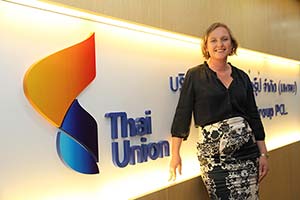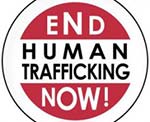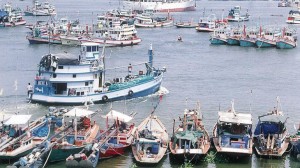Thai Union Group PCL has applauded a new initiative launched jointly by the Ministry of Labor, International Labor Organization (ILO) and the Delegation of the European Union to Thailand to tackle unacceptable forms of work, especially forced labor and child labor in the fishing and seafood processing industry.
The Bangkok-headquartered company, which reported record annual sales of THB 125.2 billion in 2015, is a major producer of frozen shrimp, canned tuna and other fishery products. The United States and Europe are its largest export market respectively accounting for 42% and 29% of total receipts last year.
 “We are pleased to see that NGOs will also be involved in this initiative and help contribute to the progress of change,” says Dr. Darian McBain, Thai Union’s global director of sustainable development. “Thai Union firmly believes that public and private sector collaboration is the key to drive positive change and tackle unfair and unethical labor practices in both the Thai and global fishing industries,” said Dr. Darian McBain, the company’s global director of sustainable development. “There is no place for these practices in the Thai fishing and seafood industries. Involvement from international institutions not only helps industry participants understand the importance of change in these critical areas, but also helps validate the progress that is achieved.”
“We are pleased to see that NGOs will also be involved in this initiative and help contribute to the progress of change,” says Dr. Darian McBain, Thai Union’s global director of sustainable development. “Thai Union firmly believes that public and private sector collaboration is the key to drive positive change and tackle unfair and unethical labor practices in both the Thai and global fishing industries,” said Dr. Darian McBain, the company’s global director of sustainable development. “There is no place for these practices in the Thai fishing and seafood industries. Involvement from international institutions not only helps industry participants understand the importance of change in these critical areas, but also helps validate the progress that is achieved.”
Dr. McBain said the need to eradicate forced labor, human trafficking and child labor was a key factor driving the introduction of Thai Union’s stringent Business Ethics and Labor Code of Conduct last year. It prohibits all forms of forced and child labor, and outlines mandatory legal and ethical requirements for conducting business.
In the last 18 months Thai Union has terminated relationships with 17 suppliers due to forced labor or human trafficking violations and reduced the number of Thai vessels it works with from over 2,000 to around 400 to provide better visibility and control of labor conditions and compliance with IUU (illegal, unreported and unregulated fishing) regulations. The company has also implemented an extensive program of auditing, from vessels to factories, to ensure the safe and legal employment of workers within its own operations and those of its suppliers.
Nestlé Outlines Progress
Meanwhile, Thai Union applauded a report recently issued by Nestlé outlining progress in eliminating labor and human rights abuses in its seafood supply chain.
 “We congratulate Nestlé both for its initiative, and the progress it has achieved,” said Dr. McBain. “We believe a shared effort involving all parties will be necessary to accomplish our shared goal of making trafficking economically unviable for those who practice it.”
“We congratulate Nestlé both for its initiative, and the progress it has achieved,” said Dr. McBain. “We believe a shared effort involving all parties will be necessary to accomplish our shared goal of making trafficking economically unviable for those who practice it.”
Noting that the company agrees with Nestlé on the vital role of traceability in combating abuses in the seafood sector, she commented: “Thai Union has implemented a system providing full traceability from catch to consumption. In Thailand suppliers must provide proof of catch, as well as detailed information on the vessels used, the crew employed, and fishing logbooks. In addition, any supplier found to be in violation of our stringent Code of Conduct – which explicitly prohibits forced labor and which enforces a zero tolerance policy – will have their contract terminated. It was these requirements that enabled us to assess traceability and employment conditions on all 270 vessels currently supplying fish to Nestlé’s supply chain.”
The global director of sustainable development has welcomed Nestlé’s engagement with the Issara Institute, an independent non-government organization based in Thailand that tackles issues of trafficking and forced labor.
“Our work with the Issara Institute has expanded rapidly over the last 12 months and now entails a regional partnership across a wide range of engagements,” she said. “This year we will be completing the rollout of workers’ hotline details from the current four sites to all factories and ports used by Thai Union. We will also be supporting the development of a mobile phone application to increase the ease with which workers can communicate concerns, participating in the Project Issara working group on migrant workers and engaging together with Thai union’s suppliers regarding labor risks.”
Demonstration Boat Launch Set
 Dr. McBain also welcomed the initiative of the Royal Thai Government, led by the Department of Fisheries to establish a demonstration boat which will act as a mobile training facility for best practices aboard fishing vessels. Thai Union, together with Nestlé, will contribute to renovation costs of the vessel which will conduct training sessions at port and fish market locations around the country to help vessel crews and captains understand how they can achieve the necessary compliance with Thai and international regulations.
Dr. McBain also welcomed the initiative of the Royal Thai Government, led by the Department of Fisheries to establish a demonstration boat which will act as a mobile training facility for best practices aboard fishing vessels. Thai Union, together with Nestlé, will contribute to renovation costs of the vessel which will conduct training sessions at port and fish market locations around the country to help vessel crews and captains understand how they can achieve the necessary compliance with Thai and international regulations.
This will be the world’s first demonstration boat to exhibit best practices in the protection of human rights of fishery workers. The first training session is scheduled to kick off in the second half of 2016. The project may later be extended to cover the regional fishing industry at the ASEAN level.





